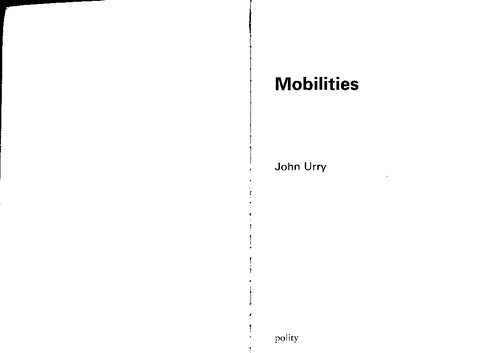

Most ebook files are in PDF format, so you can easily read them using various software such as Foxit Reader or directly on the Google Chrome browser.
Some ebook files are released by publishers in other formats such as .awz, .mobi, .epub, .fb2, etc. You may need to install specific software to read these formats on mobile/PC, such as Calibre.
Please read the tutorial at this link. https://ebooknice.com/page/post?id=faq
We offer FREE conversion to the popular formats you request; however, this may take some time. Therefore, right after payment, please email us, and we will try to provide the service as quickly as possible.
For some exceptional file formats or broken links (if any), please refrain from opening any disputes. Instead, email us first, and we will try to assist within a maximum of 6 hours.
EbookNice Team

Status:
Available4.5
12 reviewsJohn Urry has been at the centre of these debates and he draws upon an extensive array of new research and material to develop what he calls the ‘new mobilities paradigm’ for the social sciences. He shows how this paradigm makes comprehensible social phenomena which were previously opaque. He examines how ‘mobilities’ each presuppose a ‘system’ that permits predictable and relatively risk-free repetition. The book outlines various such systems and then analyses their intersecting implications for social inequality, for social networks and meetings, for the nature of places and for alternative mobility futures.
Mobilities is thus both an analysis of different mobilities historically and in the present and an argument that the social world will be analysed quite differently once peoples’ lives, organisations, states and global institutions are seen to be dealing with extensive and hugely contested mobility processes. This book rewrites social science through a mobilities paradigm.